Julius Caesar was assassinated by 23 knife stabs from his political opponents. The events surrounding Caesar’s demise mark a significant turning point in Roman history, leading to political unrest and ultimately shaping the course of the Roman Republic and Empire.
What was the plot against Julius Caesar? And who became the subsequent Emperor?
Table of Contents
How Did Julius Caesar Die?
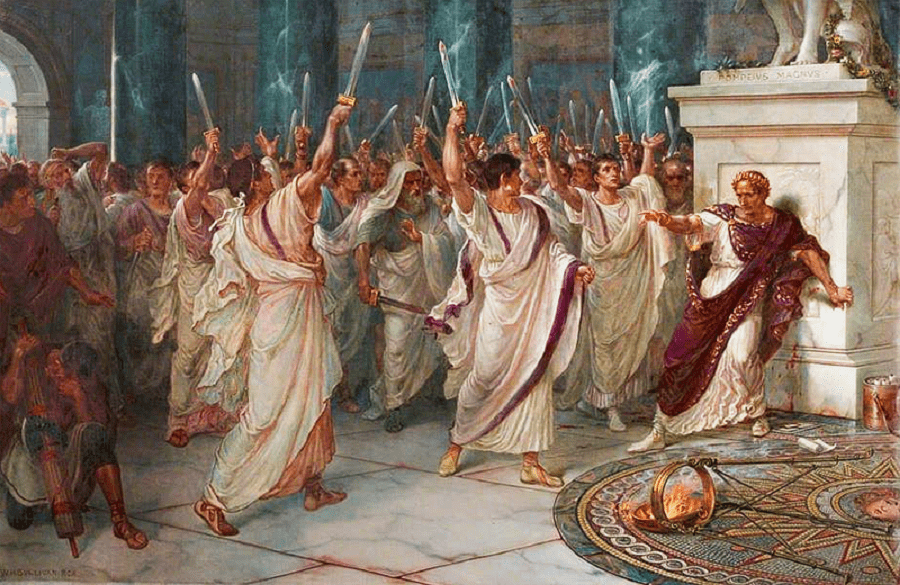
Julius Caesar died because of a carefully orchestrated assassination by a group of senators called the Liberators. The Roman senate saw Julius Caesar as a threat to the stability of the Roman Republic and its own political influence. While alternative theories and speculations exist, the historical consensus is that Caesar was stabbed multiple times on the Senate floor, eventually dying from his wounds.
When Did Julius Caesar Die?
Julius Caesar died on March 15, 44 BC, in Rome. The actual assassination took place during the Senate session, with the conspirators surrounding Caesar and launching their attack. While in our modern calendar, we refer to the date as the 15th of March, the Roman people knew the date as the Ides of March – indicating the rise of a full moon.
Where Did Julius Caesar Die?
Julius Caesar met his death in Rome, specifically at the Theatre of Pompey. The Theatre of Pompey was an expansive theater that functioned as the temporary meeting place for senators since the Roman Forum was undergoing renovations. It was in the Senate House where the assassination of Julius Caesar took place. The location holds historical significance as the site where one of history’s most influential figures met his tragic end.
Optimates and Populares
To understand the context of Caesar’s assassination, it is crucial to delve into the political climate of the late Roman Republic. Around the middle of the first century BC, Rome was experiencing significant political and social turmoil. Julius Caesar’s death had everything to do with the tensions of the time.
The governing system of the Republic was already in a stranglehold when Julius Caesar was in power. The power struggles were rampant, and the Senate was divided into two factions.
On the one hand, you had the optimates, who represented the aristocracy and traditionalists. The other side was the populares, who advocated for political reforms while championing the rights of the common people.
Julius Caesar emerged as a prominent figure during this era, and he was on the side of the populares. Over time, he distinguished himself as a skilled military general and a sharp politician. By enacting reforms that would benefit the lower classes, he sought to strengthen his political position.
Around 46 BC, Julius Caesar came into power as the sole dictator. Already from 59 BC onwards, however, he shared the power over the Roman Empire together with Pompey and Crassus. His successful military campaign and conquests, including the Gallic Wars, had earned him immense popularity and a devoted following among the Roman population.
READ MORE: Gallic Empire
Despite his achievements, Caesar faced resistance from some members of the Roman Senate. Not surprisingly, this resistance was particularly found in those that aligned with the optimates faction.
Many senators perceived Caesar’s growing power and popularity as a threat to the established order. In turn, this would have consequences for their own power and influence. This growing animosity, combined with Caesar’s own ambitions, set the stage for the events that led to his assassination.
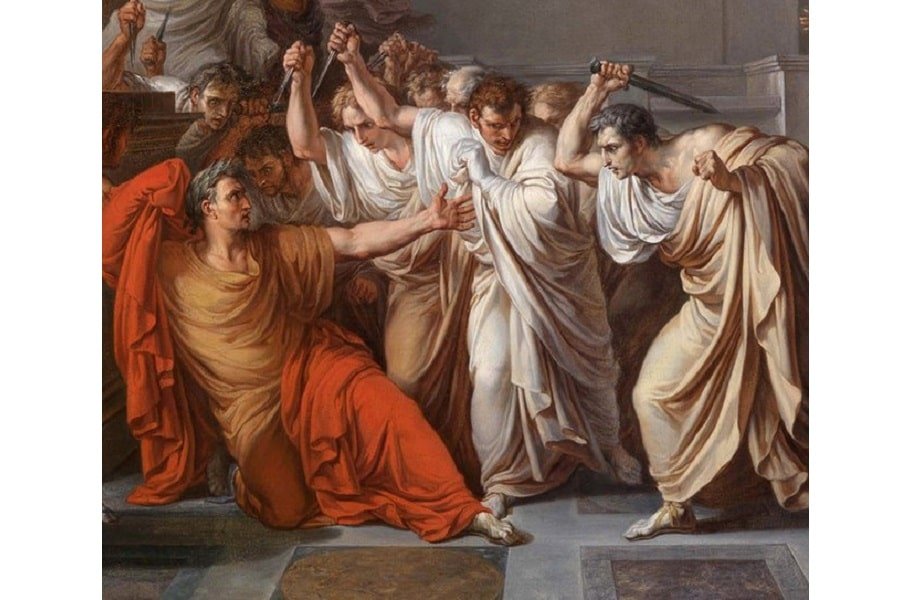
Who Killed Julius Caesar: The Liberators
One day, Julius Caesar was scheduled to attend a session of the Senate at the Theatre of Pompey. Unbeknownst to him, a group of senators, led by Gaius Cassius Longinus and Marcus Junius Brutus, had conspired to kill Caesar.
This group, known as the Liberators, was composed of disillusioned senators who feared Caesar’s growing power and the potential erosion of the Republic’s institutions. The Liberators feared that Caesar’s accumulation of power threatened the balance of the Roman Republic and could potentially lead to the establishment of a monarchy or dictatorship.
They believed that by removing Caesar from the political equation, they could restore the power of the Senate and maintain the republican form of government. Therefore, they decided to set up a senate meeting, with the main agenda point being Caesar’s murder. Caesar wasn’t aware, however.
Outside the overall fear of the consolidation of power, there were also some personal feuds involved. Some of the conspirators had previously been allies of Pompey the Great, a political rival of Caesar, and felt Caesar’s actions had undermined their interests and position within the Republic.
It’s not necessarily a strange thought to be frustrated with the position of Caesar. After all, Caesar basically took all the power of Pompey and Crassus to become the sole ruler.
The Liberators’ faction plotted that the assassination of Caesar was an act of political necessity and a means to safeguard the traditional republican values they thought were central to the Roman Republic. By eliminating Caesar, they believed, a consolidation of power would be surpassed and the authority of the Senate could be restored.
Julius Caesar Assassinated
On that particular day, Caesar entered the Senate chamber and was met under the guise of discussing state matters with his fellow politicians. When the dictator entered the theater, he was approached by Tillius Cimber – a senator – who asked him to release his exiled brother.
Caesar waved away the request, which was a perfect opportunity for the meeting to escalate. The atmosphere grew tense, and the conspirators seized the opportunity to strike. In the chaos that ensued, Caesar tried to defend himself but was overwhelmed by the sheer number of opponents.
With a sudden and coordinated assault, the senators attacked the ruler with their daggers drawn and eventually killed Julius Caesar with 23 stab wounds. It is believed that the one who first stabbed Caesar was a senator by the name of Servilius Casca. Other senators who stabbed Caesar included Brutus and Servilius’ brother Publius.
While many used their daggers to stab Caesar to death, the exact person who killed Julius Caesar is hard to determine. While accounts vary in the exact sequence of events and the extent of Caesar’s injuries, it is widely believed that around 60 senators were involved in the whole conspiracy.
Despite his military prowess and reputation, Caesar was unable to respond adequately and flee the scene. Both people that the appointed dictator regarded as friends and enemies were in the plot of his assassination that day.
It is worth noting that the Liberators’ motivations were not universally embraced among the Roman senatorial class and optimates. Many senators remained loyal to Caesar and disagreed with the actions of the conspirators.
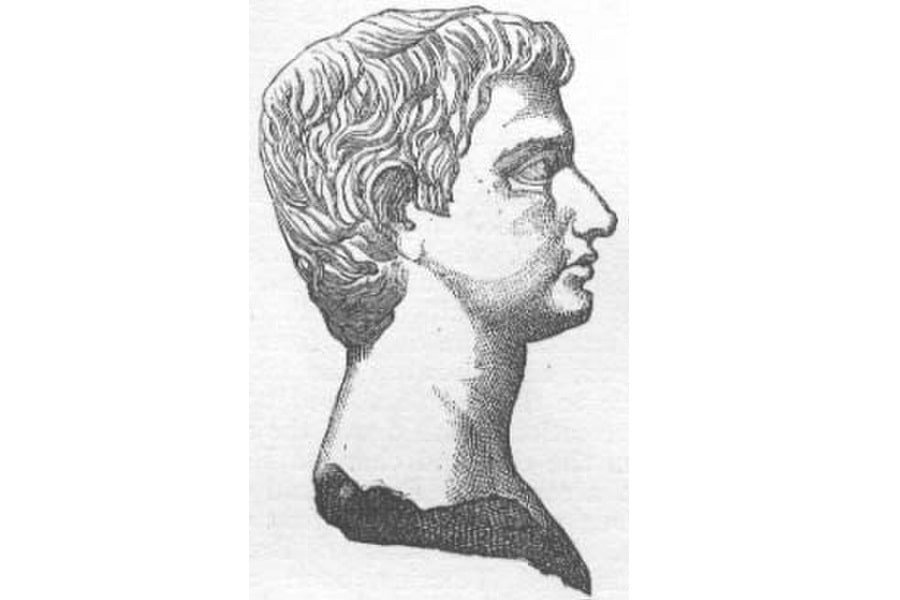
What Were Julius Caesar’s Last Words?
As should be evident, the Roman dictator didn’t expect to be assassinated by his political contemporaries. The most unexpected senator that was part of the plot against Julius Caesar was Brutus, a former ally. This, too, led to the famous last words from Caesar: ‘Et tu, Brute?’ (‘You too, Brutus?’), expressing his shock and betrayal upon seeing Brutus among his assailants.
The utterance of this phrase has become legendary and is often associated with the tragic nature of Caesar’s assassination. It should be noted that the phrase is legendary for a reason. Brutus had far going personal and political connections with Caesar, so the fact that he killed Julius Caesar is one of the most famous betrayals of all time.
Et Tu, Brute?
Brutus was born in 85 BCE and was of noble birth. He was the son of Marcus Junius Brutus the Elder, who had been a trusted ally of Pompey the Great – the one that eventually had to give his power to Caesar. When he emerged as a powerful figure in Roman politics, Caesar turned to Brutus’ family, despite their previous association with Pompey.
Caesar recognized Brutus’ potential and developed a mentor-like relationship with him. He saw in Brutus a young and talented individual who could come in handy when promoting his political agenda and in the process of solidifying his power.
Caesar appointed Brutus to several important positions, including the military governor of Gaul and later as urban praetor in Rome.
While the great Caesar was taking care of Brutus, his family legacy still favored the actual opponents of Caesar. The growing concerns over Caesar’s consolidation of power and the erosion of traditional Republican institutions weighed heavily on Brutus.
Brutus still held a strong belief in the republican ideals and the principles of shared governance that had made Rome into what it was and found himself at a moral crossroads: loyalty to your family or loyalty to your mentor?
At that point, the group of senators approached him and told him that the conspirators decided to assassinate the declared dictator Caesar. Influenced by his family, overall philosophy, and the fear of Caesar’s potential tyranny, Brutus chose to join the conspiracy.
The assassination of Caesar on the Ides of March, 44 BC, marked a tragic turning point in Brutus’ life. He, like all the other senators, believed that by removing Caesar from power, he was acting in the best interest of Rome and its republican values. However, the aftermath of the assassination was far from what Brutus and the other conspirators had envisioned.
The Funeral of Julius Caesar
The funeral of Julius Caesar was a grand and dramatic event that captivated the people of Rome. It served as a platform to honor his memory and solidify Caesar’s legacy, but also to take a political stance. The details of the funeral are primarily derived from historical accounts, most notably the writings of Roman historian Suetonius.
The funeral ceremony took place in the days following Caesar’s assassination. Caesar’s body was displayed publicly at the Forum Romanum, the central marketplace in Rome. He was laying on something called a funeral bier, which is basically an adorned structure that showcases a dead person to the public. No casket was involved yet.
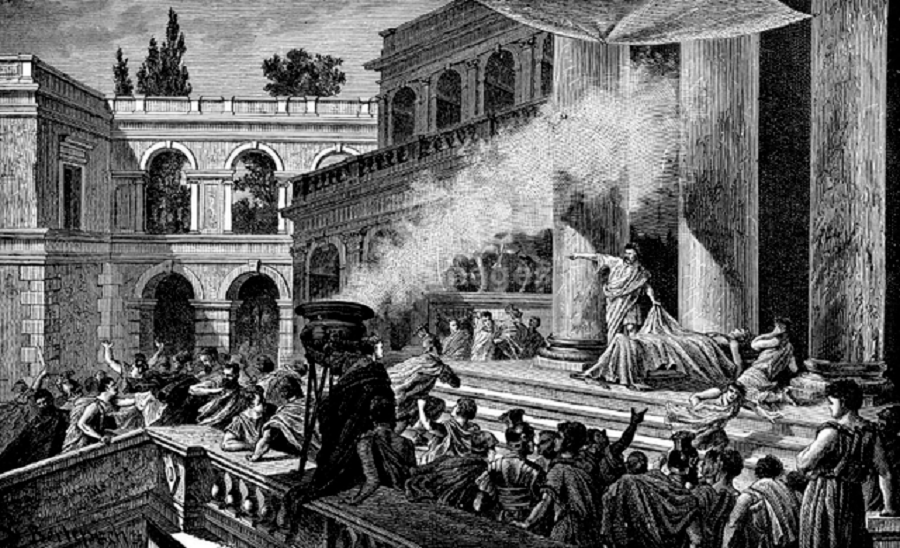
Procession
The funeral procession started from the place where Caesar was displayed and made its way through the streets of Rome. It’s not hard to believe that the procession was accompanied by a large crowd, including both mourners and curious onlookers. After all, Julius Caesar’s time shouldn’t be over yet; he came into his position through the popular vote.
During the procession, Caesar’s body was carried on the shoulders of dignitaries and supporters. The body was likely covered with a rich funeral pall and a wax effigy of Caesar, representing his likeness, was paraded alongside the bier.
As the procession progressed, mourners and participants chanted slogans and praised Caesar’s accomplishments, emphasizing his status as a hero and benefactor of the people. It was a deliberate attempt to shape public opinion and rally support for the deceased leader.
Upon reaching the Roman Forum, a funeral oration was delivered by Antony. This speech, known as the ‘funeral oration of Julius Caesar’, is now one of the most famous speeches in history. Antony used his flair and way with words to incite the crowd and cast blame on Caesar’s assassins, further fueling public discontent with the death of Caesar.
After the oration, Caesar’s body was cremated on a big structure made of wood (a pyre) which was erected in the Forum. The flames rose high, symbolizing the ascension of Caesar’s spirit to the realm of the Roman gods. Following the cremation, there were reports of violence and rioting in the city, as the emotional intensity of the event stirred up anger and political unrest.
The funeral of Julius Caesar served as a pivotal moment in Roman history, marking the end of the Republic and the beginning of a new era.
This new era highlighted the power of spectacle and rhetoric in shaping public opinion and demonstrated the immense influence that Caesar wielded over the people even after his death. The characteristics of the political stream Caesar was representing were somewhat predictable.
After all, they were called the populares. In some form, this resembles modern-day populism. As you might know, spectacle (like the media) and a specific sort of rhetoric are also central to these political realities.
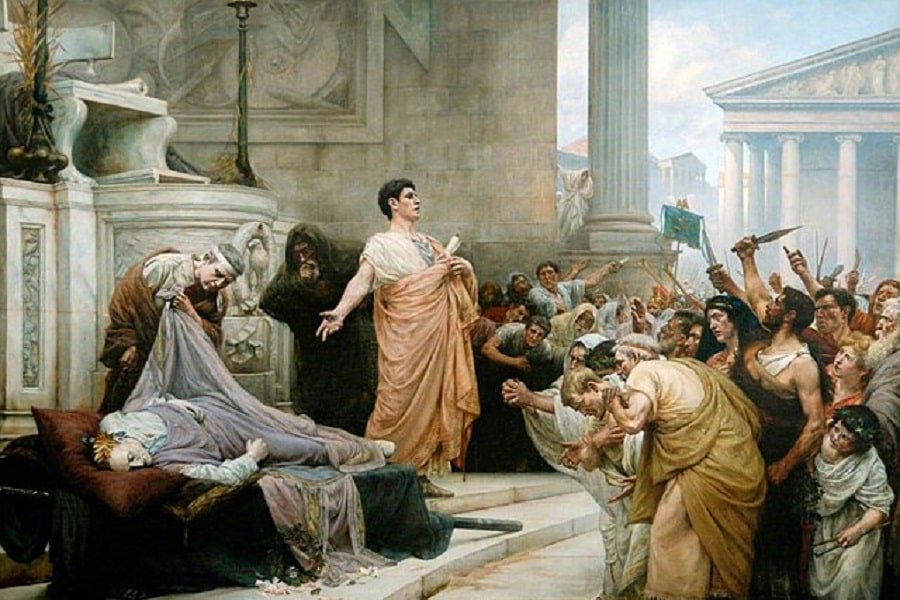
Consensus Surrounding the Cause of Death?
While the historical consensus widely accepts that Julius Caesar was assassinated by a group of conspirators in the Senate, there have been some speculations and alternative theories regarding the cause of his death. These alternative theories, however, are not widely supported by historians and lack substantial evidence.
One such theory suggests that Caesar’s death might have been the result of a medical condition rather than an assassination plot. Some propose that he may have suffered from epilepsy, heart problems, or a stroke and that his demise on that particular day was coincidental.
However, it’s important to note that these claims are largely speculative and lack strong historical backing.
The overwhelming historical evidence, including contemporary accounts from ancient sources like the Roman historian Suetonius, firmly supports the assassination narrative. These accounts describe the events leading to Caesar’s death, the involvement of the conspirators, and the political motivations behind the plot.
Considering the available historical information and the accounts of eyewitnesses and ancient historians, the prevailing belief remains that Julius Caesar was indeed assassinated by a group of conspirators in the Senate.